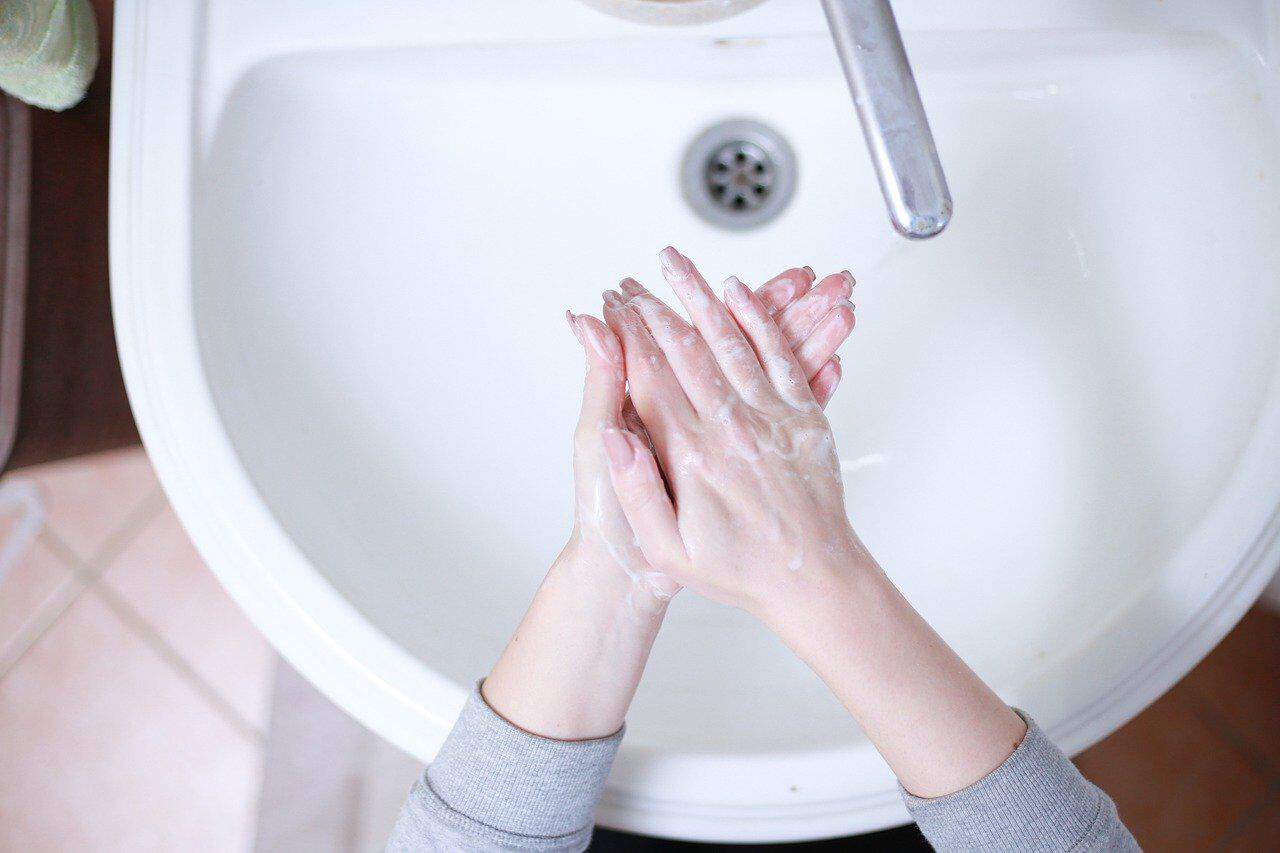
April 16, 2020 at 3:28 pm · Justin Becker · 2 comments
Apartment Living and Coronavirus: How to Avoid Getting COVID
If you are a renter in a complex or community, there are many reasons why you might be worried about contracting COVID from your neighbor. With that said, the fact is that this would be unlikely – unless you live in a crowded, high–rise building with shared amenities and common areas.
At the pandemic’s beginning, more people were taking cover in their homes, waiting for the infection to pass. Similarly, public health officials thought apartments were a risk for spread because of how close together people are in them and how easy it would be for COVID particles to travel through air ducts or shared spaces
According to the Centers for Disease Control and Prevention (CDC) and the World Health Organization (WHO), however, the HVAC systems (heating, ventilation, and air conditioning) in congregate housing are not spreading COVID as widely as previously believed.
The truth is that everyone was still learning about the virus back at that time. Since then, we have all realized the need for a proper ventilation system for people living in large apartments and shared places, like the gym and laundry rooms.
Apartment Living and Coronavirus
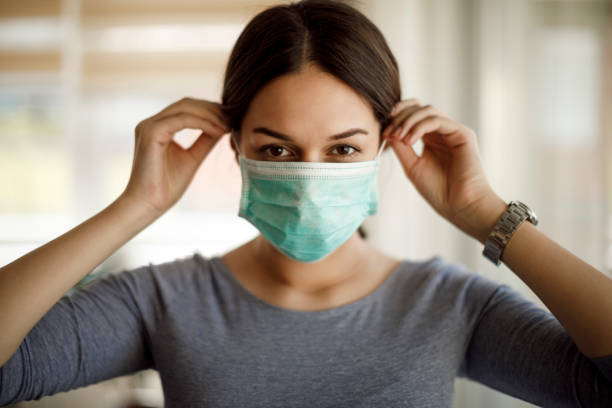
Given that apartments are supposed to be safe, they do pose a threat to residents who do not follow proper COVID safety measures. Staying indoors and avoiding contact with other residents can certainly reduce contracting the virus.
Is your residence a secure environment? Are you concerned about contracting the virus? All of these are concerns that many residents have. So, we are here to help you find out what is going on and how to avoid getting the virus while living in your apartment.
Let us find out all you can do to avoid getting COVID in apartment complexes.
How COVID is Spread
COVID is a respiratory illness caused by the severe acute respiratory syndrome coronavirus 2 (SARS-CoV-2). It can be passed from person to person through coughing, sneezing, or close contact with an infected individual.
Person to person transmission can occur in a variety of ways, including:
Airborne Transmission
According to the CDC, the virus can stay in the air for up to three hours. Although it is unclear how much COVID is carried in the air, you are likely to become infected if someone breathes out and you breathe in that same air.
Surface Transmission
COVID transmission in this form is one of the most common. If an infected individual coughs and the particles land on a surface, whether it is a doorknob, a countertop, or anything else, you will be in danger of becoming infected if you end up touching that area. According to the CDC, the virus can survive on a surface for up to three days, so undertake a thorough cleaning of your apartment to avoid becoming infected by surface transmission (learn how to reduce dust in your apartment here).
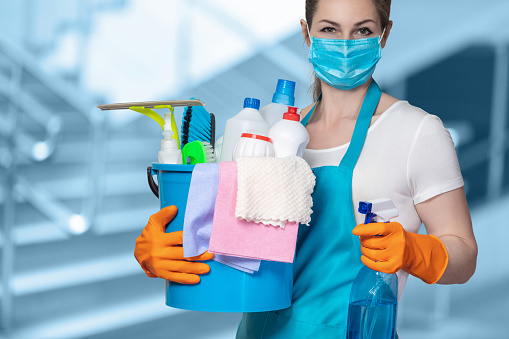
Droplets or Aerosols
COVID-19 transmission can also take place in this way. When an infected person coughs or talks, little droplets called aerosol transport the virus into the air, putting anyone within six feet of the sick person at higher risk of contracting the infection.
This is why it is always advisable to wear masks while talking and stay at a safe distance to avoid breathing in contaminated air. If possible, avoid meeting individuals in person. Instead, conduct most of your meetings remotely and meet people only when essential.
How to Avoid Getting Coronavirus in Apartments
The first line of defense against a pandemic is to avoid getting infected, ofcourse. In an apartment complex or community, it is important to be aware of the residents around you and know how they get infected. For example, if someone has the flu, they may have come into contact with it by shaking hands with someone sick or touching an object that has been infected.
With that said, here are common tips you can use to avoid getting infected:
Mask Up Before Opening the Apartment Door
If you don’t wear a mask, you and your family will be at higher risk. Before opening the door to leave your unit, make sure you are wearing a mask, whether it is a surgical mask or a cloth mask.
Furthermore, using the correct type of mask can help you from contracting the infection. An N95 mask is the ideal sort of mask to wear, according to OzSAGE, an independent organization of researchers. Wearing this type of mask will provide additional protection to you and other community members while interacting. With that said, for everyone’s safety, masking up alone is not enough; so advise your visitor(s) to do the same.
Act as if Everyone in Your Apartment Building is Infected
Having the mindset that everyone around you is infected and that you should not take any chances can help you and your family members’ well-being. This mindset will assist you in taking the necessary precautions, such as handwashing, wearing a mask, and keeping a safe distance from your next-door neighbors and others.
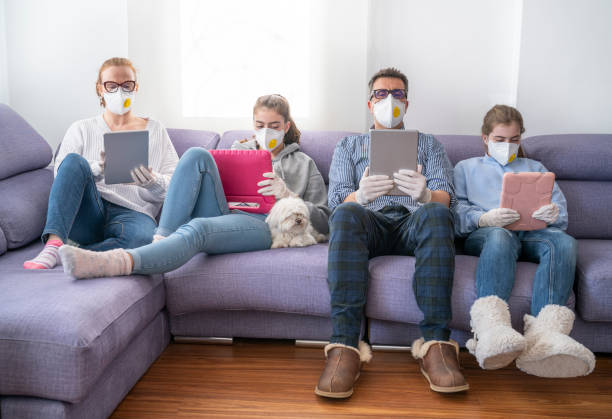
Get Vaccinated
Getting vaccinated could save your life and prevent you from catching the illness in the first place. Even though no vaccination is 100% effective, the reduction in COVID-19 transmission has been enormous due to them. The vaccine has been shown to improve the body’s immunity and aid in the battle against infection.
Avoid Poorly Ventilated Indoor Spaces
Apart from getting the vaccine, staying away from poorly ventilated areas is crucial. Poorly ventilated spaces put you at danger of inhaling virus-carrying aerosols or particles, which ultimately puts you at risk of infection. You need fresh air, but wear a mask to avoid breathing in the airborne particles if you absolutely must be there. Ensure to keep the windows and doors open as much as possible, too.
Be Careful While Visiting Common/Shared Areas
One of the most common areas where you can contract the virus is in a gym locker room. Locker rooms are often moist and provide the perfect environment for the virus, which, remember, could live for up to two to three days.
Another example of a place where you can easily contract it is in laundry rooms, like a laundromat or even your own home. The virus can be found on your clothes or in the air as you dry them.
Please be cautious when visiting these locations. When you go to the gym or laundromat, remember to bring hand sanitizer with you.
Avoid Getting on Crowded Elevators
COVID-19 is a life-threatening illness that can be transmitted by merely breathing the same respiratory droplets in the air as someone who has the disease. Scientists have found that COVID-19 is most commonly spread through prolonged contact with the patient.
To avoid getting COVID-19, it is important to distance yourself from those infected because it is impossible to know if an infected person will develop other symptoms and transmit the virus. A crowded elevator can pose a great risk to your health; take the stairs if you can or wait a little longer for another empty elevator.
The property owners of your apartment complex should take measures to curb the spread of COVID-19, too. Consider asking your property manager about limiting the number of people on the elevator at one time, if they don’t already. Also, remember to inquire whether the elevator’s high-efficiency particulate air purifier can operate efficiently.
Wash Your Hands Frequently
If you want to take extra precautions, wash your hands as frequently as possible. Do this because it is difficult to keep track of how many items you have touched while out and about. Cleaning your hands will help you avoid contracting the virus.
Fix Broken Exhaust Fans
Another potential risk of contamination in your housing unit is shared ventilation systems, which is especially common in older buildings when the same system connects the kitchen and bathroom. As a result, keep your fans functioning at all times. If they stop operating, call your apartment maintenance specialist as soon as possible.
What to do if Someone in Your Apartment Complex Contracts COVID
A COVID-19 infection can harm someone’s mental health; thus, you must provide the finest possible care. That is why you must act as a nurse and provide room service. Fortunately, you do not need to be professionally trained to attend to an infected person, just follow these steps:
Choose a ‘Sick Room’ for them to Isolate in
Isolate the ill individual (self-isolating) in a room and make sure they spend their time alone, with the exception of going to the bathroom.
Pick a ‘Sick Bathroom’ and Avoid Sharing for Safety Purposes
Do not share a bathroom with the ill person; choose a dedicated restroom for them to use. Since COVID-19 can stay on hard surfaces for longer periods, sharing a bathroom can ultimately be dangerous.
Keep their Laundry Separate
When washing clothes, keep theirs separate from the rest. Ensure you have a separate basket, and when you bring clean ones in, leave them at the door for the ill individual to pick up.
Final Thought
The CDC recommends taking measures to fight this virus. When you are in close contact with an infected person, it is important to wash your hands as often as possible to avoid the COVID-19 virus. You should avoid going out into public places and practice social distancing from people who show signs of COVID-19 infection.
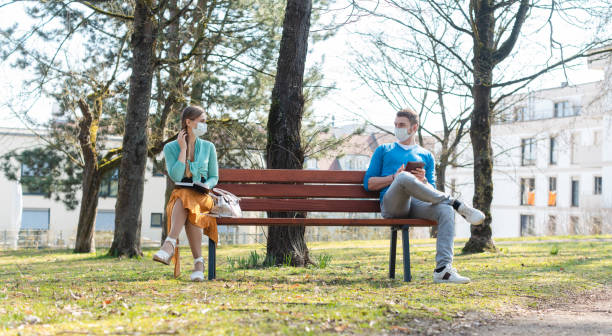
Also, if you are inside and the ventilation system is not working properly, make sure the landlord hires air conditioning engineers to fix it so you can breathe some clean air, and be sure to open windows for fresh air as often as possible.







